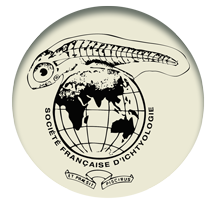French research on fisheries in the Northwest Atlantic, from its origins to the present
André Forest, forest-andre@neuf.fr
How to cite: Forest, A. (2022). French research on fisheries in the Northwest Atlantic, from its origins to the present. Cybium, 46(4): 323-335. https://doi.org/10.26028/CYBIUM/2022-464-001
This review of French research on fisheries in the Northwest Atlantic first summarizes the history of the access rights of the French fleets to the fishing grounds of this area, then the evolution of the fisheries management systems. The focus then shifts toward French fishery research from the beginning of the 20th century. Four major periods are described to characterize the objectives of this research, its implementation, and its results. The first French scientific studies of fisheries in the Davis Strait, Newfoundland, and Nova Scotia banks by fishery support vessels date back to the 19th century. These studies intensified from the middle of the 20th century with the deployment of dedicated research vessels, especially from 1970 with the establishment of a research laboratory and an oceanographic vessel in Saint-Pierre and Miquelon (SPM). These assets, a close collaboration with laboratories in Canada and the United States, and participation in the work of the regional fisheries commission (ICNAF/NAFO) enabled the teams in SPM to develop and perform innovative research. However, the delimitation in 1992 of the EEZ in Canada and around SPM and the depletion of the main fish stocks dealt a severe blow to the French fisheries in this region, causing France to review its research strategy.


